Headquarters of the State Bank of Vietnam . (Photo: Vietnam+)
In the context of the global economic environment that is fraught with risks, especially from the new reciprocal tax policy of the US President Donald Trump administration, the Vietnamese banking industry still maintains its plan for positive profit growth in 2025.
However, behind the apparent stability are complex challenges that are gradually taking shape, forcing banks to carefully adjust their strategies to adapt to global tariff risks.
Careful profit planning
According to the latest updated report of SSI Research, the group of joint stock commercial banks has submitted a plan for the 2025 General Meeting of Shareholders with the target of pre-tax profit increasing by about 17% compared to the previous year - close to the forecast of 18% given by SSI.
This shows the industry's cautious optimism in the face of unpredictable developments at home and abroad.
Despite setting a fairly high credit growth target of up to 21% for this group, profit forecasts are lower than in 2024 - reflecting cautious expectations on net interest margin (NIM) in the context of interest rate competition and increasing funding costs.
Some banks such as Vietnam Prosperity Joint Stock Commercial Bank (VPBank), Ho Chi Minh City Development Joint Stock Commercial Bank (HDBank) and Orient Commercial Joint Stock Bank (OCB) boldly set profit targets higher than market expectations, while units such as Asia Commercial Joint Stock Bank ( ACB ), Vietnam Technological and Commercial Joint Stock Bank (Techcombank), Military Commercial Joint Stock Bank (MB) and Saigon Thuong Tin Commercial Joint Stock Bank (Sacombank) were more cautious than SSI's estimate by 4-5%.
In current scenarios, SSI believes that many banks' plans have not fully reflected the risks from the US's reciprocal tax policy.
However, Washington's 90-day tax suspension is considered a "positive pause," giving banks more time to respond and adjust their credit portfolios, especially in the second quarter of 2025 - a time when hoarding is expected to increase ahead of sensitive milestones.
Regarding dividend policy, the general trend is to limit cash payments to retain resources for capital increase. Except for ACB, MB and OCB, which plan to pay cash dividends, most of the remaining banks choose to distribute shares. In particular, Vietnam Joint Stock Commercial Bank for Industry and Trade (VietinBank) stands out with its plan to pay dividends in shares at a rate of up to 44.64%, while retaining all profits in 2024 to strengthen financial capacity.
Transaction activities at VietinBank. (Photo: Vietnam+)
In addition, many banks are also taking strategic steps to expand their operations, such as increasing charter capital at Joint Stock Commercial Bank for Foreign Trade of Vietnam (Vietcombank), Joint Stock Commercial Bank for Investment and Development of Vietnam (BIDV) and MB, or restructuring their investment portfolios, such as the case of Maritime Bank of Vietnam (MSB), which plans to divest from TNEX Finance and seek to acquire a securities company or fund management company - to complete a more diverse financial ecosystem in the long term.
The impact of tariffs cannot be underestimated.
Although the US reciprocal tax policy has not been implemented immediately, it is still a variable that has a significant impact on Vietnam's economic and financial ecosystem. As the "backbone" of capital for the economy, the banking industry is closely linked to sectors directly affected by international trade such as textiles, seafood, wood products and FDI enterprises.
SSI believes that if the new tax rates are applied at the end of the year, banks with a high proportion of foreign currency loans such as BIDV, Vietcombank, VietinBank or MB will face greater pressure, both in terms of credit growth and asset quality.
Export-related loans may be slow to disburse, or at risk of being reclassified if the market does not recover in time.
Sharing the same view, Dr. Can Van Luc, Chief Economist of BIDV in the Financial Market Outlook 2025 report said: "2025 is expected to be a year of stable growth for the banking industry, but there are still many risks and challenges. In particular, bank profit growth still faces many obstacles."
Specifically, the expert pointed out that the bad debt ratio is still high, mainly in industries such as construction, real estate, trade and manufacturing... while debt liquidity is still weak, affecting debt collection by banks.
In particular, import-export businesses will face more difficulties with the new US tariff policy, leading to the risk of bad debt continuing to increase.
In addition, the fact that revenue from foreign exchange and banking business... cannot recover quickly enough to contribute to profits or management costs tend to increase due to technology investment... will also be a challenge for banks this year.
In addition, according to SSI, the consumer finance sector may also be indirectly affected. The reason is that the main customer group of this sector, including low-income workers and industrial park workers, will be more vulnerable to economic fluctuations, thereby increasing credit risks and provisioning costs.
In addition, the USD is showing a weakening trend, contributing to reducing the cost of capital mobilized in foreign currency and reducing the pressure on exchange rates for banks. The Vietnamese government is also expected to introduce growth stimulus measures, such as boosting public investment, restructuring debt and supporting interest rates to maintain a stable rhythm for the financial system.
Businesses want banks to create favorable conditions and offer preferential interest rates for the private sector. (Photo: Vietnam+)
In the long term, SSI believes that the outlook remains uncertain. If the US implements a comprehensive tax policy later this year or early 2026, the banking industry will have to adjust its growth strategy from “export-oriented” to “domestication,” which means prioritizing domestic consumption, private investment, and public investment.
This could also be a necessary shift to reduce dependence on foreign markets and build better domestic resilience.
This content was also recently discussed at the Shareholders' Meeting of Saigon-Hanoi Commercial Joint Stock Bank (SHB).
In response to shareholders' concerns about the impact of new US tax policies on Vietnamese export goods, Mr. Do Quang Hien, Chairman of the Board of Directors, said that SHB had a meeting with the US ambassador and proactively developed response scenarios.
Export customers account for a small proportion of SHB's credit portfolio, so the impact is insignificant. However, the bank is still proactively preparing response scenarios to ensure uninterrupted operations.
Vietnam's banking industry in 2025 is assessed to maintain a relative balance between profit growth and risk prevention. However, unpredictable fluctuations from US tax policy are still a major bottleneck that needs to be monitored.
In that context, proactively adjusting strategies, restructuring loan portfolios and maintaining a strong capital base will be the key to helping Vietnamese banks maintain growth in the coming period.
Source: https://baobinhphuoc.com.vn/news/4/172356/nganh-ngan-hang-viet-nam-than-trong-chien-luoc-de-ung-pho-rui-ro-thue-quan


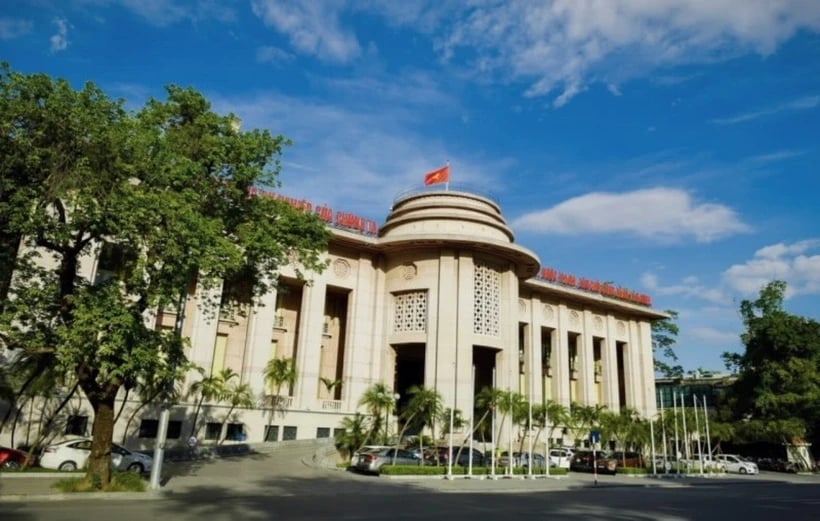
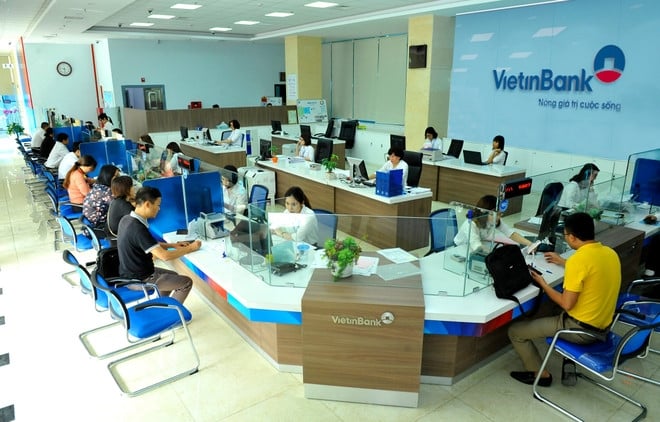
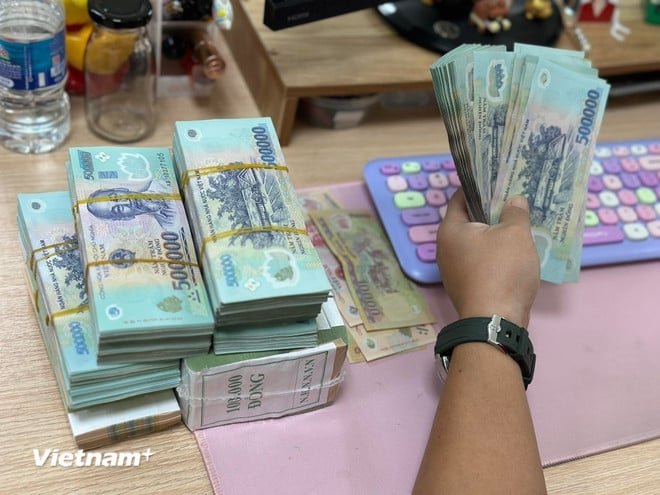


![[Photo] Coming to Son La, let's "show off" with the Wallflowers](https://vphoto.vietnam.vn/thumb/1200x675/vietnam/resource/IMAGE/2025/5/21/627a654c41fc4e1a95f3e1c353d0426d)
![[Photo] Prime Minister Pham Minh Chinh receives the President of Asia-Pacific region of PowerChina Group](https://vphoto.vietnam.vn/thumb/1200x675/vietnam/resource/IMAGE/2025/5/21/0f4f3c2f997b4fdaa44b60aaac103d91)
![[Photo] Scientific workshop "Building a socialist model associated with socialist people in Hai Phong city in the period of 2025-2030 and the following years"](https://vphoto.vietnam.vn/thumb/1200x675/vietnam/resource/IMAGE/2025/5/21/5098e06c813243b1bf5670f9dc20ad0a)



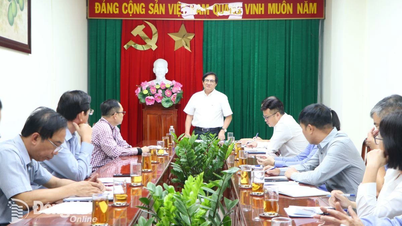

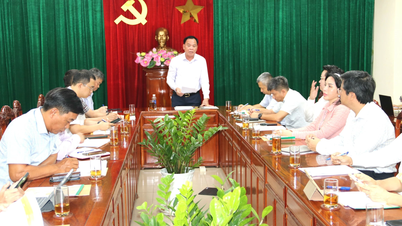
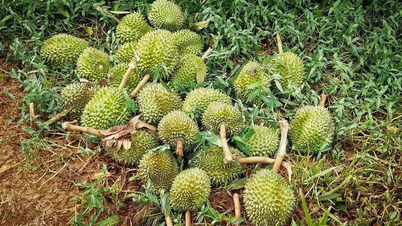










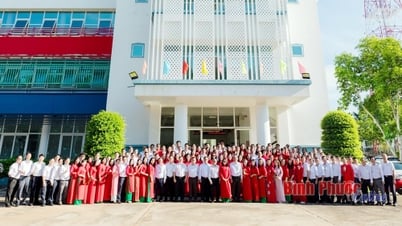


















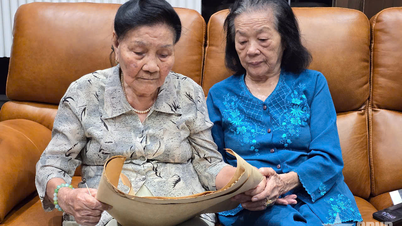
















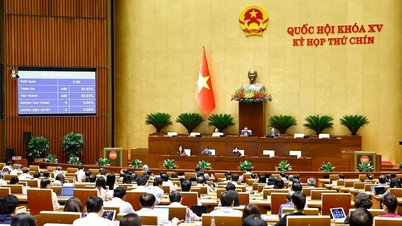

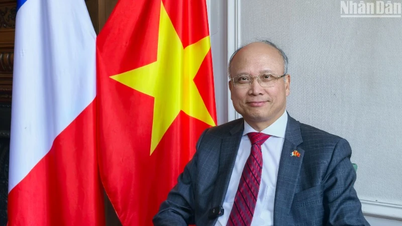



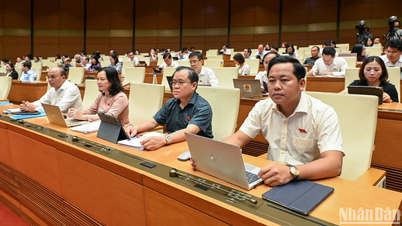
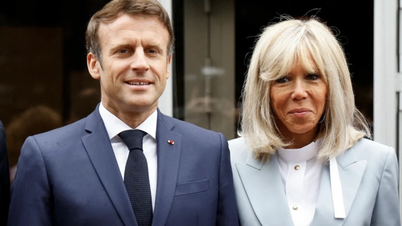






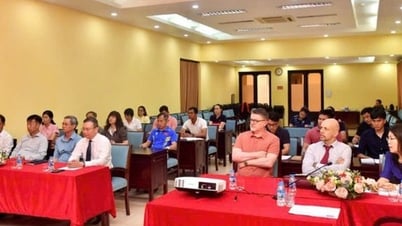
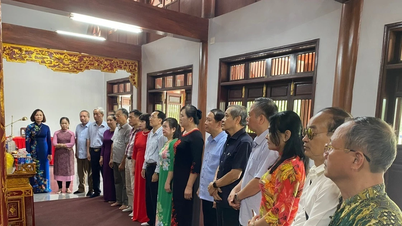










Comment (0)